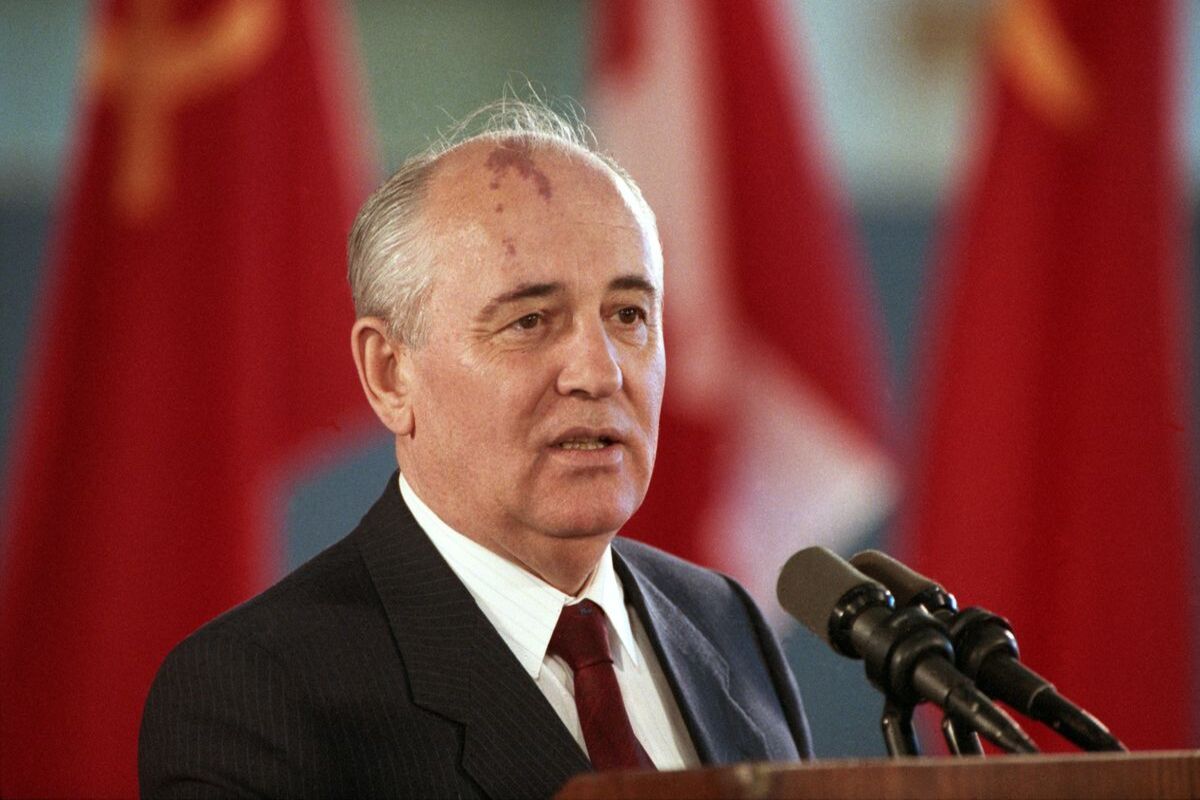Just a couple of days after Mikhail Gorbachev was laid to rest, a Moscow court took away the newspaper Novaya Gazeta’s licence to publish. It seemed as if the last vestiges of Gorbachev’s legacy were being buried alongside his mortal remains. Novaya Gazeta’s editor-in-chief, Dmitry Muratov, who shared last year’s Nobel Peace Prize with Filipina journalist Maria Ressa, was prominent among the thousands of mourners who attended Gorbachev’s funeral last Saturday. The independent newspaper was founded in 1993, partly with proceeds from Gorbachev’s Nobel Prize, and had ever since remained a voluble source of dissent in the Russia that emerged from the dissolution of the Soviet Union 30 years ago. It’s distressingly common for that collapse to be blamed mainly on Gorbachev, the last leader of the USSR.
In the aftermath, Gorbachev grudgingly acknowledged that the criticism wasn’t entirely unfair. But that was never his intent. He was determined to transform the behemoth while preserving in a different form both its socialistic impulses and its multicultural essence. It wasn’t initially obvious that the project was doomed. The Soviet Union had plenty of resources, both natural and human, that could have been deployed to overcome the stasis of the Brezhnev-era stagnation through much of the 1970s. But the path to achieving that goal was not surprisingly, never clear. Gorbachev wasn’t initially singled out as a reformist when he assumed power in 1985.
Advertisement
It was obvious that he, at 54, was considerably younger than his three geriatric predecessors. It took a year for what he had in mind to become a little more clear. And it was momentous. Glasnost was the relatively easy part. Perestroika inevitably proved much trickier. The first involved lifting the curbs on free expression that had survived the Stalin era and, as Gorbachev put it, filling in the blank pages of Soviet history. He did not need to point out that such pages were plentiful. The second related to transforming a polity and an economy that stopped well short of meeting people’s needs. Gorbachev had been in charge of agriculture during his journey to the helm. He knew all too well, including during his stint as the party chief in his native Stavropol, that much needed to change. He also realised it wouldn’t be easy.
It proved even harder than he had probably envisaged, not least because of his own reforms. Enabling the right to free speech, unknown in the Soviet Union since the 1920s, meant that his accomplishments would be subjected to unprecedented scrutiny and the doubts about his agenda would be publicly aired. Gorbachev wasn’t too worried. The initial domestic reaction to his reformism was largely positive. Hardly any Soviet leader since Vladimir Lenin had frivolously mingled with ordinary citizens. In due course, however, he became one of the most hated leaders — and, thanks to him, the hatred did not need to be concealed. That in itself was a triumph. It also spelled the end of the USSR. The end came rather suddenly.
The fatuous coup attempt in August 1991 ought not to have come as a surprise, but its rapid failure owes as much to the freedom of expression that Gorbachev had succeeded in instituting as it does to Boris Yeltsin’s commendable posturing. Gorbachev survived the coup but returned to Moscow a diminished leader. The party he led had sought to topple him and return to the stagnant alternative, but the vast majority of Russians resented and resisted the retrograde effort. This was due, in large part, to what Gorba-chev had achieved in the previous six years. Dissent no longer seemed like a straight path to prison. Russians took to the streets en masse to resist the atte-m-p-ted coup. And, cruc-ially, soldiers refused orders to shoot fellow citizens.
But Gorba-c-hev’s project to ret-ain what remained of the USSR after the Baltic republics had exited with a union treaty encompassing a looser Soviet federation was thwarted by the elected presidents of Russia, Ukraine and Belarus, who surreptitiously signed an agreement that effectively dissolved the Soviet Union. Gorbachev had no choice but to accept the fait accompli, and formally resigned his presidential post on Christmas Day in 1991. What followed, for Russia in particular under Yelt-sin, was a travesty. But it’s absurd to blame Gorbachev for the neoliberal ‘shock therapy’ and its consequences.
That wasn’t his chosen path. Putin’s Russia suggests the appropriate lessons have not been learned from the freq-u-e-n-t–ly uplifting Gorbachev era. At his crowded fu–neral, a photographer commented: “It’s been six months since so many decent people have together been in one place.” Among them was the veteran liberal politician Grigory Yavlinsky, who noted: “These people came to Gorbachev to say, ‘Thank you, Mr Gorbachev. You gave us a chance, but we lost this chance’.” Perhaps “You gave us a chance” would serve as a suitable epitaph for a leader who tried, but failed, to save the Soviet Union.
A version of this story appears in the print edition of the September 8, 2022, issue.









